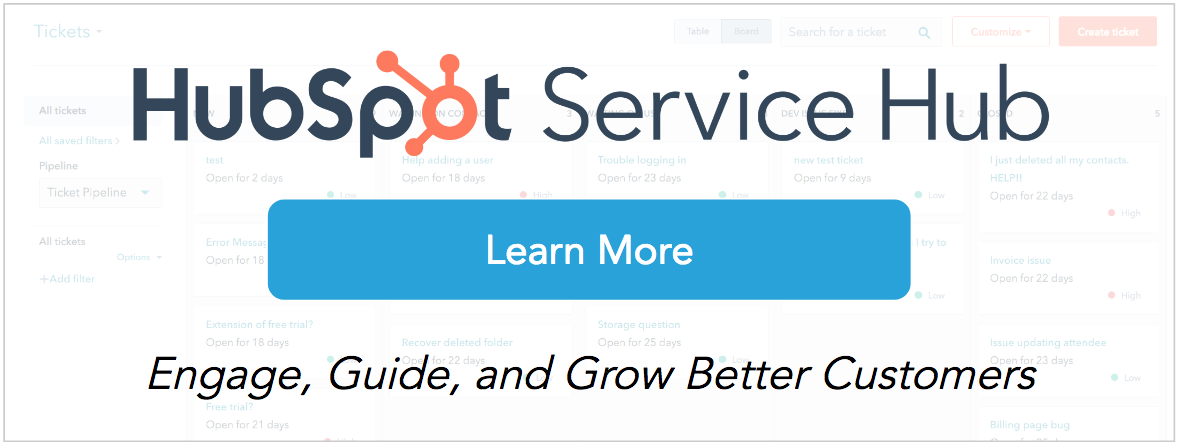It takes a lot for a new customer to become a customer these days.

Very few customers discover a company, find a product they need, and decide to purchase all in the same day -- instead, they take many steps, over the course of days, weeks, or even months to make a purchase and start using a product.
The complex process of winning over customers requires strategy and commitment. That's why sales and marketing funnels and buyer's journeys were created -- to divide and conquer each little step that goes into converting a potential customer into a returning one.

Marketers seem to be in agreement that different strategies are required for each stage in the funnel and that you need to create unique content for each stage. However, what many marketers don't know is that each stage of the funnel also requires collecting a unique batch of customer feedback.
Surveying your customers in order to collect customer knowledge at each of these stages, and not just after a customer buys your product, is essential if you want to improve your retention rates and win over new customers. But why?
In this blog post, we are going to dive into why surveying customers at each step of the funnel is so important.
Why Collecting Customer Feedback Is Important Across the Customer Journey
1. You don't know unless you ask.
Before your customers become customers, they are very hard to track and understand. This is because you often never have direct contact with potential customers before they become actual customers. Sure, you can send them emails and track open rates, and you can track your site visits to a certain extent.
But unlike with current customers, potential customers rarely show their face and make their opinions heard. So, if you want to know what your potential customers are thinking (and you should), the best way is simply to ask.
Asking unqualified leads in the awareness stage what they think about your industry in general, and what they think of your specific product, is an excellent way to refine your marketing strategy and make sure you are correctly suiting the needs of your consumer base.
On that note, surveying potential customers might also reveal to you that your consumer base is not who you thought it was. If you gather feedback from leads in the awareness stage, you might be surprised to find that a lot of your potential customers come from a different demographic than you had thought, and you never knew because you never took the time to get in touch with them and hear what they had to say.
No matter what you find, one thing is sure: you'll be glad you asked.
2. Surveying at different stages helps improve retention.
Another important reason to survey customers at every stage in the funnel is to hear about problems as quickly as possible. Customers often leave a company when they are unsatisfied without ever expressing their dissatisfaction to the company. If current customers are hesitant to let you know before they say goodbye, imagine how unlikely it is that an MQL in the consideration stage lets you know that they decided to go with a competitor.
If you want to catch your potential customers and current customers before they decide to leave and go somewhere else, you absolutely need to be collecting feedback before they close.
In general, collecting feedback through surveys is a great way to improve your retention. But doing it at different stages in order to collect a more thorough and comprehensive view of your customer satisfaction and on issues that come up in the buyer journey will make your customer retention strategies that much more powerful.
3. To survey accurately, you need to survey immediately.
Lastly, surveying customers at every stage is important simply because customers forget. If you survey a loyal returning customer of five years about how they felt when they first started receiving emails from you, they probably are going to have a hard time objectively remembering the experience, because they have five years of positive experiences with the company influencing their emotions.
In general, humans aren't great at remembering things. We often shift our memories to fit in with a larger narrative that we believe about our lives and experiences. So in a similar way, if someone has a negative experience with your company, they are going to have a hard time remembering that they really enjoyed a marketing strategy you employed the first time they visited your site.
For this reason, to get reliable, accurate feedback, it's best to survey people immediately after they interact with some of your content, no matter what stage in the funnel they are in.
Collecting the right customer feedback in your online ordering funnel takes careful planning and a firm understanding of the journey your customers take when buying a product on your website or app. Here's an infographic that shows when to effectively capture feedback from your customers:

It's a mistake to only survey customers after they make a purchase.
If you fail to capture the wealth of customer knowledge you can get by getting feedback at every step along the marketing funnel, you will miss out on discovering new ways to make the conversion from potential customer to loyal brand evangelist that much easier.

![How to Write a Thank You Letter for Customer Feedback [Templates]](https://knowledge.hubspot.com/hubfs/thank-you-letter-for-customer-feedback-1-20241003-1267887.webp)








![‘How Did You Hear About Us’ Survey Options: All-In-One Guide [+ Examples]](https://www.hubspot.com/hubfs/how%20did%20you%20hear%20about%20us_featured.jpg)